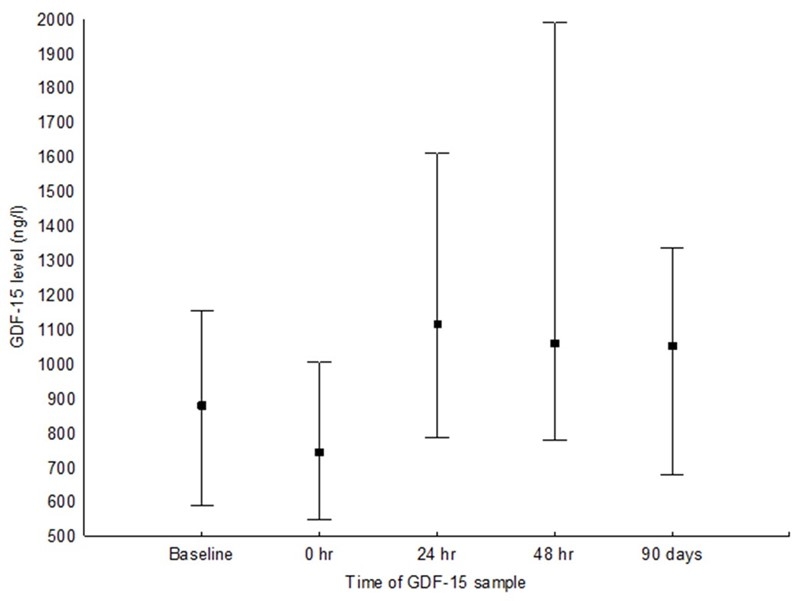GDF-15 LEVEL CHANGES IN EARLY AND LATE PERIOD AFTER CATHETER ABLATION OF ATRIAL FIBRILLATION
Introduction: GDF-15 (growth differentiation factor 15) is protein from transforming growth factor β (TGF-β) cytokine family. In patients with atrial fibrillation (AF) GDF-15 is a potent marker of bleeding adverse events in anticoagulated patients and a predictor of overal mortality. Aim of the study was to describe how catheter ablation of atrial fibrillation affects GDF-15 levels in early and late period.
Methods: We enrolled 18 patients (median 58 (50; 67) years, 56 % males) undergoing radiofrequency catheter ablation (RFCA) of AF who underwent 5 sequential blood takes (before RFCA - baseline, right after RFCA (0 hr), 24 and 48 hours after RFCA and 90 days after RFCA) to analyze GDF-15 level.
Results: Out of all patients, 9 patients (50 %) had paroxysmal and 9 (50 %) persistent AF. Mean (IQR) radiofrequency time was 48 (36; 60) minutes. The dynamics of GDF-15 levels is visualised in Figure. GDF-15 level peak was registered 24 hours after ablation with median (IQR) 1115 (794; 1549) ng/l. After 90 days from ablation there still persisted higher GDF-15 levels in relation to input levels (p <0.05 in all comparisons). Weak corelation (r=0.6; p <0.05) between peak GDF-15 values and peak NT-proBNP was found.
Conclusion: Eventhough GDF-15 is considered as a nonspecific biomarker reflecting general condition of patient, the levels are significantly affected by RFCA of AF.
Figure: Dynamics of GDF-15 values (median; IQR).


